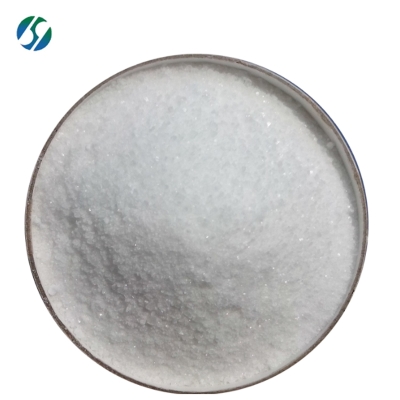-
Categories
-
Pharmaceutical Intermediates
-
Active Pharmaceutical Ingredients
-
Food Additives
- Industrial Coatings
- Agrochemicals
- Dyes and Pigments
- Surfactant
- Flavors and Fragrances
- Chemical Reagents
- Catalyst and Auxiliary
- Natural Products
- Inorganic Chemistry
-
Organic Chemistry
-
Biochemical Engineering
- Analytical Chemistry
-
Cosmetic Ingredient
- Water Treatment Chemical
-
Pharmaceutical Intermediates
Promotion
ECHEMI Mall
Wholesale
Weekly Price
Exhibition
News
-
Trade Service
▎Editor of WuXi AppTec content team
.
There are many people who do not take toothache seriously, thinking that as long as it is not unbearable pain, they can get by
.
But in fact, toothache is likely to be just a symptom
.
The health of the oral cavity is related to the function of important organs such as the heart, brain, kidneys, and even to the health of the whole body
.
For example, an unhealthy mouth is likely to increase the risk
of Alzheimer's disease.
So, why do oral diseases affect the brain? Recently, two authoritative studies have partly explained why
.
of periodontitis.
Why periodontitis occurs
There are many causes and risk factors for periodontitis, such as plaque, bacterial growth, poor oral hygiene habits, hormonal changes, obesity, smoking, etc
.
of chronic periodontitis.
It can cause a variety of periodontal lesions, resulting in swollen gums, bad breath, tender gums, easy bleeding gums, loose or falling out of teeth, chewing pain and other symptoms
.
This bacterium (Porphyrin gingival) is not alone, it also has an important accomplice (gingivin
).
Gingivin, also known as gingival protease, is a group of cysteine proteases secreted by Porphyrin monas gum and is currently recognized as the main virulence factor
.
Gingivin can not only participate in the proteolytic activity and pancreatic enzyme-like activity of Porphyrin monas gum, but also help Porphyrin monas gum escape the defenses of the natural immune system, thereby promoting the destruction of periodontal tissue and leading to a local inflammatory response
in periodontal tissue.
Image source: 123RF
So why is gingivin associated with Alzheimer's disease?
Mechanisms associated with gingivin and Alzheimer's disease
in certain neurodegenerative diseases such as Alzheimer's disease (AD).
A paper published in the Journal of Alzheimer's Disease points out that tau proteins are originally present inside nerve cells, but when they encounter gingivin, they are released from nerve cells into the surrounding environment
.
These free tau proteins, the physical properties will change, become coil-like or other shapes
.
The scary thing is that these tau proteins will reconnect with healthy neurons, causing neurofibrillary tangles, which will overwhelm nerve cells and eventually die
.
This process, like the domino effect, repeats itself, causing more neurons to die
.
Meanwhile, another study in the Journal of Alzheimer's Disease Reports found that porphyrin monas gums also cause elevated levels of many pro-inflammatory factors in the brain, including interleukin-1 and interleukin-6
.
These inflammations are associated with β-amyloid plaque buildup, which is also an important risk factor
associated with the development of Alzheimer's disease.
Studies have speculated that gingivin can also promote the breakdown of amyloid precursors, allowing more mature amyloid proteins to be produced
.
Image source: 123RF In summary, the health of the oral cavity is like a cannonball hidden in the body for a long time, if the oral cavity is in an unhealthy state for a long time, then its related risk factors may wait for the opportunity to stir up trouble, stirring up other tissues or organs can not be peaceful
.
Also, you might want to see:
.
.
.
.
.
Click on the business card below to pay attention to the [Health Squeezer]
In the message dialog reply: Oral Guard
Get more science knowledge about real stories
▼Image source: 123RF
Resources
[1] Shalini Kanagasingam et al, Antimicrobial, Polarizing Light, and Paired Helical Filament Properties of Fragmented Tau Peptides of Selected Putative Gingipains, Journal of Alzheimer's Disease (2022).DOI: 10.
3233/JAD-220486[2]Shalini Kanagasingam et al, Porphyromonas gingivalis Conditioned Medium Induces Amyloidogenic Processing of the Amyloid-β Protein Precursor upon in vitro Infection of SH-SY5Y Cells, Journal of Alzheimer's Disease Reports (2022).
DOI: 10.
3233/ADR-220029
Li Gege, Pan Jiahui, Tang Qiuling, Liu Xinchan, Hou Yupai, & Yu Weixian.
(2017).
Mechanism of gingivin to promote immune evasion of Porphyrin gingivus.
International Journal of Stomatology, 44(5), 519-522.
Liang Yuqing, Dong Weijun, Wu Wenbin.
Research progress on the correlation between porphyrin gingivum and Alzheimer's disease [J] .
Chinese Journal of Neurology,2020,19 (05): 525-527.
DOI: 10.
3760/cma.
j.
cn115354-20190917-00540
Disclaimer: WuXi AppTec content team focuses on global biomedical health research advances
.
This article is for informational purposes only and the views expressed in this article do not represent the position of WuXi AppTec and do not represent that WuXi AppTec supports or disagrees with the views in this article
.
This article is also not a recommended
treatment plan.
For guidance on treatment options, visit a regular hospital
.







